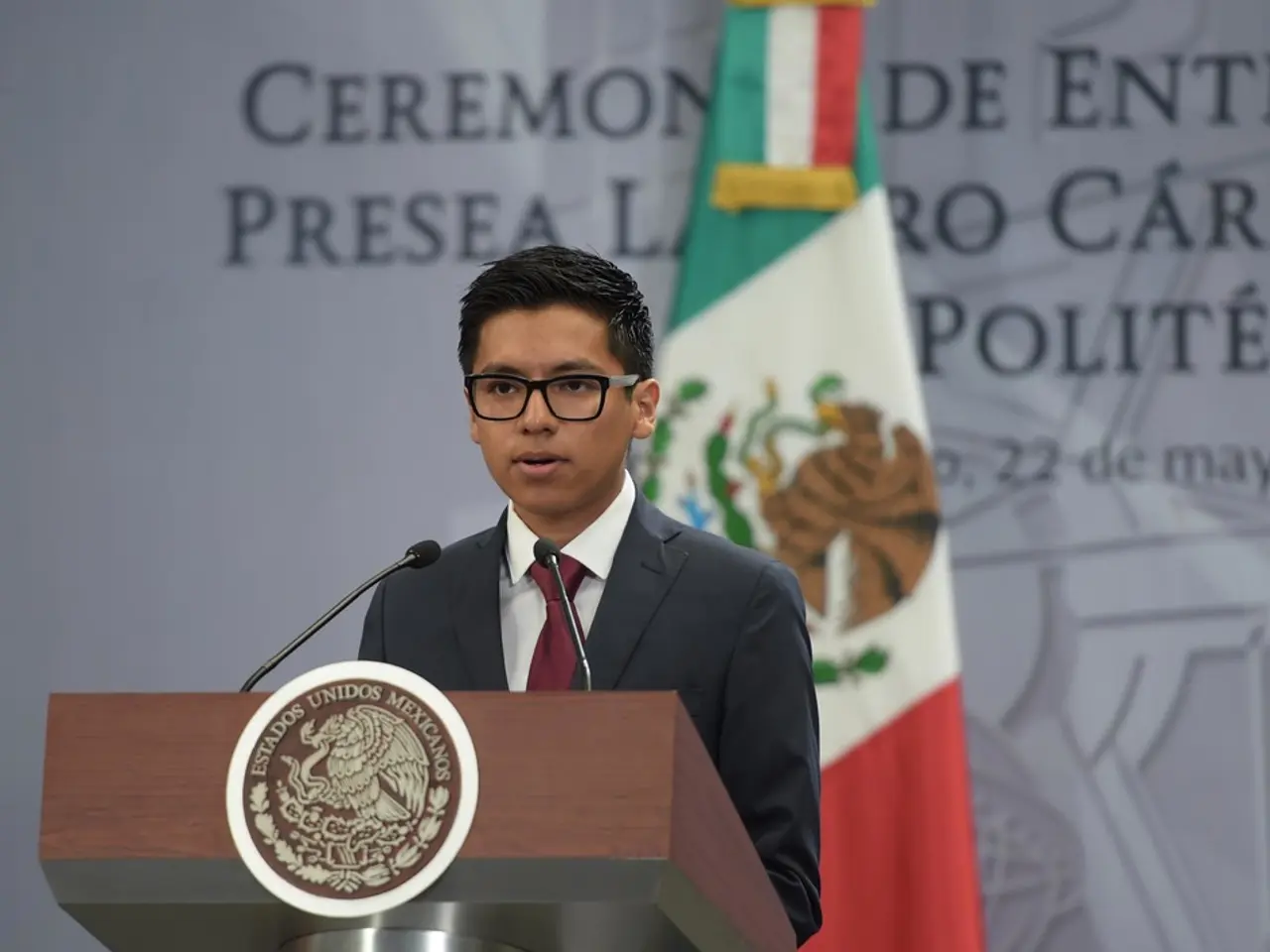Iranian Nuclear Talks Suspension Due to Israel's Perceived Aggression, Labeled as Potential War Action
In a bold and audacious move, Israel has upped the ante in the Middle East, delivering a massive blow to Iran with a coordinated attack involving over a hundred drones. Targets included nuclear facilities, missile factories, and defense systems across 12 Persian cities. Senior military officials and nuclear scientists were among those targeted, notably General Hosein Salami, the commander-in-chief of the Iranian Revolutionary Guard, and General Mohamad Hosein Baqeri, the chief of staff of the Armed Forces. This unprecedented operation has instigated alarm and fear, with the International Atomic Energy Agency expressing concern over potential harm to people and the environment.
The Iranian Revolutionary Guard vowed Israel would pay a heavy price for the attack, while the Israeli Army claimed it was an offensive, preventive, precise, and combined operation based on high-quality intelligence. The tense atmosphere surrounding the conflict has only intensified as the United States and Iran attempt to negotiate a new nuclear agreement.
The question on everyone's mind is, why now? Some experts believe Israel is operating in a worst-case scenario of permanent war with all its neighbors, especially considering the dissatisfaction with the ongoing dynamics of sanctions against Iran. Furthermore, a critical report from the International Atomic Energy Agency has added fuel to the fire, as Israel has historically targeted key figures in Iran's nuclear program.
As the dust settles, several aspects remain unclear. Although the White House claims no involvement, Iran accuses the United States of authorizing, helping, or encouraging the attack. Experts argue that President Trump may have been more or less complicit in the Israeli prime minister's order, though Washington has admitted to being informed in advance.
Israel's bold move comes at a critical time amidst growing voices against its offensive in Gaza. The Ayatollahs, part of the so-called "Resistance Axis," find themselves increasingly weakened against the Hebrew state. Several escalations have occurred, but few predicted this attack.
With Iran already announcing it's abandoning the negotiating table, the risk of a nuclear power and a military power clashing in Asia looms large. Experts worry about how long the US administration will support Israel's actions, especially considering the potential long-term consequences of such a conflict.
One possibility is that Iran could counterattack with unconventional methods like cyberattacks or drone strikes. However, Iran's allies have been decimated since the beginning of the war in Gaza, leaving the Persian clerics vulnerable. Yet, Iran does not want an open war with Israel, as the regime fears it may not be able to fall due to its political, economic, military, and financial foundations.
Throughout it all, Annahta Nassir, a Spanish-Iranian political scientist, emphasizes that Iran remains Iran - a country with a unique capacity that other nations do not have, and one that cannot be easily destroyed in two days or its army, political regime, or strategic fabric quickly eliminated. The conflict's trajectory remains uncertain, making predictions about its future potentially fraught with unintended consequences.
The unexpected attack on Iran has sparked discussion about the country's general news, politics, crime-and-justice, and war-and-conflicts. As Iran and the United States attempt to negotiate a new nuclear agreement, the international community is left questioning Israel's motivations and potential repercussions, leading to debate over the long-term implications of this bold move.








